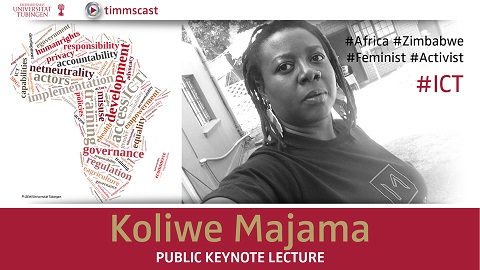|
Title:
|
Exploring Africa's Digitalisation Agenda in the Context of Promoting Civil Liberties
|
|
Description:
|
Conference - Digitalisation in Africa: Interdisciplinary Perspectives on Technology, Development, and Justice, 26 and 27 September 2018
|
|
Creator:
|
Koliwe Majama (author),
Regina Ammicht Quinn (author)
|
|
Contributor:
|
ZDV Universität Tübingen (producer)
|
|
Publisher:
|
ZDV Universität Tübingen
|
|
Date Created:
|
2018-09-26
|
|
Subjects:
|
Universität Tübingen,
Ethik,
Politik,
Digitalisierung,
Zeitgeschichte,
|
|
Identifier:
|
UT_20180926_001_da-ethics2018...
|
|
Rights:
|
Rechtshinweise
|
|
Abstracts:
|
Corporate actors, civil society and government stakeholders are increasingly implementing information and communication technologies (ICT) in the Global South, purportedly to
improve the quality of life and well-being of individuals in less connected regions.
Sub-Saharan Africa has been identified as such an ?under-connected? world region and has become a major focus of technology-based development initiatives. Examples range from free access to specific content on the internet
(?zero-rating?) to e-health, e-education, e-government and e-agriculture programmes, as well as mobile banking applications and ICT infrastructure such as drones or white space technology.
With growing activity in the fields of digitalisation and ICT for development (ICT4D) in Africa, critical questions have to be raised: What are the motivations behind ICT export and digitalisation programmes? How are technologies
used, who is excluded from ICT use and why? Bearing in mind that technologies are not neutral but have certain values inscribed in them, how are digital technologies designed, and what impact does this have on individual
opportunities for action as well as societal futures? In which ways do ICT change (moral) norms of action, cultural traditions and the distribution of power? Does the export of ICT by Western companies and development
programmes have "neo-colonial" effects? Other relevant topics concern local content, gender dynamics, and the values of privacy and access to information.
|



